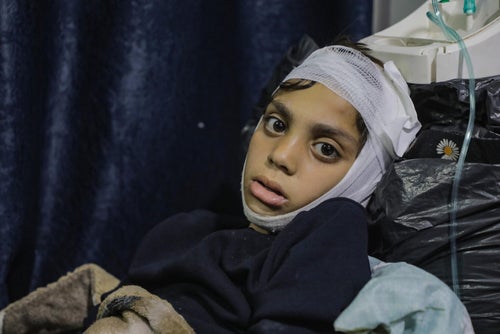
Donate Where the Need is Greatest
Help UNICEF to be there for children wherever the need is greatest, no matter what.
For the world's most vulnerable children, UNICEF's presence on the ground is much more than just life-saving deliveries. In their greatest times of need, UNICEF is an encouraging message of hope from supporters all around the world that children have not been forgotten. Every child has the right to survive and thrive, regardless of whatever situation they may be in.

Thank you for your donation!
We've processed your donation and sent you a confirmation email with all the details.
Help even more by sharing our appeal
Make your gift go even further by spreading the message with your family & friends
Start a fundraiser for UNICEF Australia
From giving up presents, to running a marathon, climbing a mountain, or selling cakes, there are so many ways for you to make a difference












